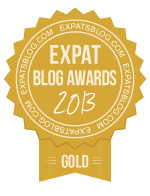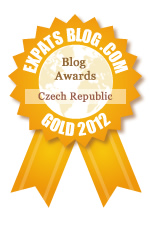
Ukraine has been in the news quite a bit over the last couple of years. The country sits between Europe and Asia. It is positioned between the European Union (and NATO) and Russia. Україна is the second-largest country in Europe; a little smaller than Texas or about four times as big as Georgia. It is home to about 44.3 million people. Kyiv is the capital city.
 |
| Between the EU and Russia |
 Over the centuries, the area of modern Ukraine has been ruled by Lithuania, Poland, the Ottoman Empire, the Austro-Hungarian Empire, and the Russian Empire. It was an independent country for a few years following WWI but then became the Ukrainian Soviet Socialist Republic and a founding member of the USSR.
Over the centuries, the area of modern Ukraine has been ruled by Lithuania, Poland, the Ottoman Empire, the Austro-Hungarian Empire, and the Russian Empire. It was an independent country for a few years following WWI but then became the Ukrainian Soviet Socialist Republic and a founding member of the USSR.  Under Stalin, Ukrainian nationalism was put down. Forced collectivization and unrealistic quotas for farmers caused Holodomor, the Great Famine, where millions of Ukrainians were starved to death. Another 7 - 8 million more people died during WWII.
Under Stalin, Ukrainian nationalism was put down. Forced collectivization and unrealistic quotas for farmers caused Holodomor, the Great Famine, where millions of Ukrainians were starved to death. Another 7 - 8 million more people died during WWII.  |
| Hryvnia (₴) is the official currency |
©NutshellEdu
©The Daily Conversation
 Ukraine sits on the border of the European Union. This is part of the current problem. In very simplistic terms, the western part of Ukraine wants to be part of Europe while the eastern part of the country wants closer ties with Russia.
Ukraine sits on the border of the European Union. This is part of the current problem. In very simplistic terms, the western part of Ukraine wants to be part of Europe while the eastern part of the country wants closer ties with Russia. The country's official national language is Ukrainian. However many people also speak Russian. In the east, Russian is an official regional language but not the national language. Most people in the east can't speak Ukrainian.
The country's official national language is Ukrainian. However many people also speak Russian. In the east, Russian is an official regional language but not the national language. Most people in the east can't speak Ukrainian.  When the Soviet Union broke up Ukraine was a nuclear power. In 1996, Ukraine surrendered all of its Soviet-era nuclear weapons to Russia. This was under the condition that Ukrainian territory would be respected. Yet Russia has annexed Crimea.
When the Soviet Union broke up Ukraine was a nuclear power. In 1996, Ukraine surrendered all of its Soviet-era nuclear weapons to Russia. This was under the condition that Ukrainian territory would be respected. Yet Russia has annexed Crimea.
©CCTV News
©Sky News
Terrible fighting has been going on in the eastern part of the country. Ukrainian forces have been fighting Russian backed separatists and more than 5,000 people have died with many more people displaced from their homes.
Czech Republic has a large Ukrainian population and I work with a few. One chap's parents live near Donetsk where fighting has been an everyday occurrence for quite some time. I can't imagine what it must be like for him. I just hope that a peaceful solution can be found soon.





















.jpg)
.jpg)
.jpg)
.jpg)
.jpg)
.jpg)
.jpg)
.jpg)
.jpg)



























